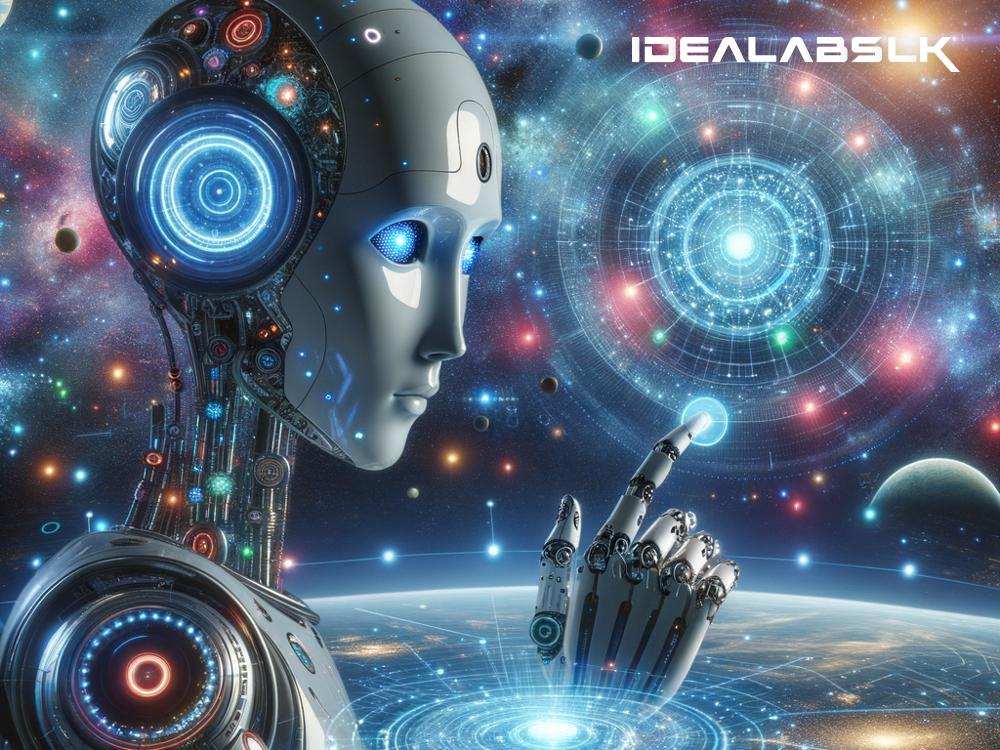Imagine a future where space exploration and artificial intelligence (AI) merge to open new frontiers like never before. It sounds like something straight out of a sci-fi movie, right? But guess what? We're on the brink of such a transformation, and by 2025, the fusion of these two fields is expected to revolutionize not only how we explore the cosmos but also how AI evolves to become even more innovative and integral to our lives. Let's dive into how this exciting future is shaping up.
The Dawn of a New Era: AI Meets Space Exploration
Space, the final frontier, has always captivated humanity's imagination. But it's vast, mysterious, and, honestly, a bit intimidating. Here's where AI comes into play. AI, with its ability to process and analyze data far beyond human capabilities, is making space less unknown and more within our reach. By 2025, AI will transform space exploration through its ability to handle complex calculations, predict cosmic patterns, and manage spacecrafts without direct human intervention.
One of the most exciting aspects is how AI will make autonomous decisions in real-time during space missions. Imagine a spacecraft navigating through asteroid belts or adjusting its course based on the immediate analysis of space weather conditions—tasks that would be incredibly risky and challenging for human astronauts.
AI-Powered Robotics: The Space Explorers of Tomorrow
Robotic rovers and drones, powered by AI, are set to play pivotal roles in exploring surfaces of planets and moons. These robots will be the scouts, sending back invaluable data and even preparing the ground for future human missions. With advancements in AI, by 2025, these machines will not only follow pre-programmed instructions but also make decisions on where to go, what samples to collect, and how to overcome obstacles. This level of autonomy will accelerate our exploration and understanding of the cosmos like never before.
Decoding the Cosmos: AI's Role in Processing Vast Amounts of Space Data
Space missions generate humongous amounts of data. Processing this data manually is practically impossible. AI, with its machine learning capabilities, steps in as a game changer. By 2025, AI algorithms will become even more sophisticated in sifting through this cosmic data, identifying patterns, and even discovering new celestial bodies. This rapid processing will enable scientists to make discoveries at a pace that's inconceivable with current technology.
Moreover, AI will play a crucial role in managing the health of satellites and spacecraft, using data to predict and prevent potential system failures before they happen. This predictive maintenance ensures longer mission durations and higher success rates.
Enhancing Communication: Breaking Through Cosmic Silence with AI
One of the biggest challenges in space exploration is communication, especially as missions venture further into space. Signals can take hours to travel from spacecraft back to Earth, making real-time human control impractical. By leveraging AI, spacecraft can become more self-sufficient, capable of diagnosing and fixing issues or making pivotal mission decisions without waiting for instructions from Earth.
By 2025, we can expect AI to improve not just the autonomy of spacecraft but also the efficiency of communication technologies, ensuring faster, more reliable data transmission across the vast distances of space.
The Symbiotic Relationship: How Space Exploration Will Propel AI Forward
It's not just about how AI will help us explore space; space exploration will also push the boundaries of AI itself. The unique challenges of space provide unprecedented problems for AI to solve, driving the technology to evolve in novel ways. The sophisticated AI needed for autonomous navigation in space or for analyzing extraterrestrial samples will find applications back on Earth, potentially revolutionizing sectors like autonomous vehicles, emergency response, and even healthcare.
Looking to the Future: The Journey Beyond 2025
While 2025 may seem like a milestone, it's really just the beginning of a new chapter in human exploration and technological advancement. The synergy between space exploration and AI opens a universe of possibilities, from establishing human outposts on other planets to discovering signs of extraterrestrial life. As we stand on the cusp of this exciting future, it's clear that the integration of AI into space exploration is not just transforming how we reach for the stars but also how we perceive our place in the cosmos.
In conclusion, the fusion of space exploration and artificial intelligence by 2025 promises to catapult our capabilities and knowledge to new heights. This partnership will not only unlock mysteries of the universe but also accelerate innovations that could benefit various aspects of our daily lives. The future is indeed a shared journey with AI as we venture further into the unknown, pushing the limits of what's possible.

